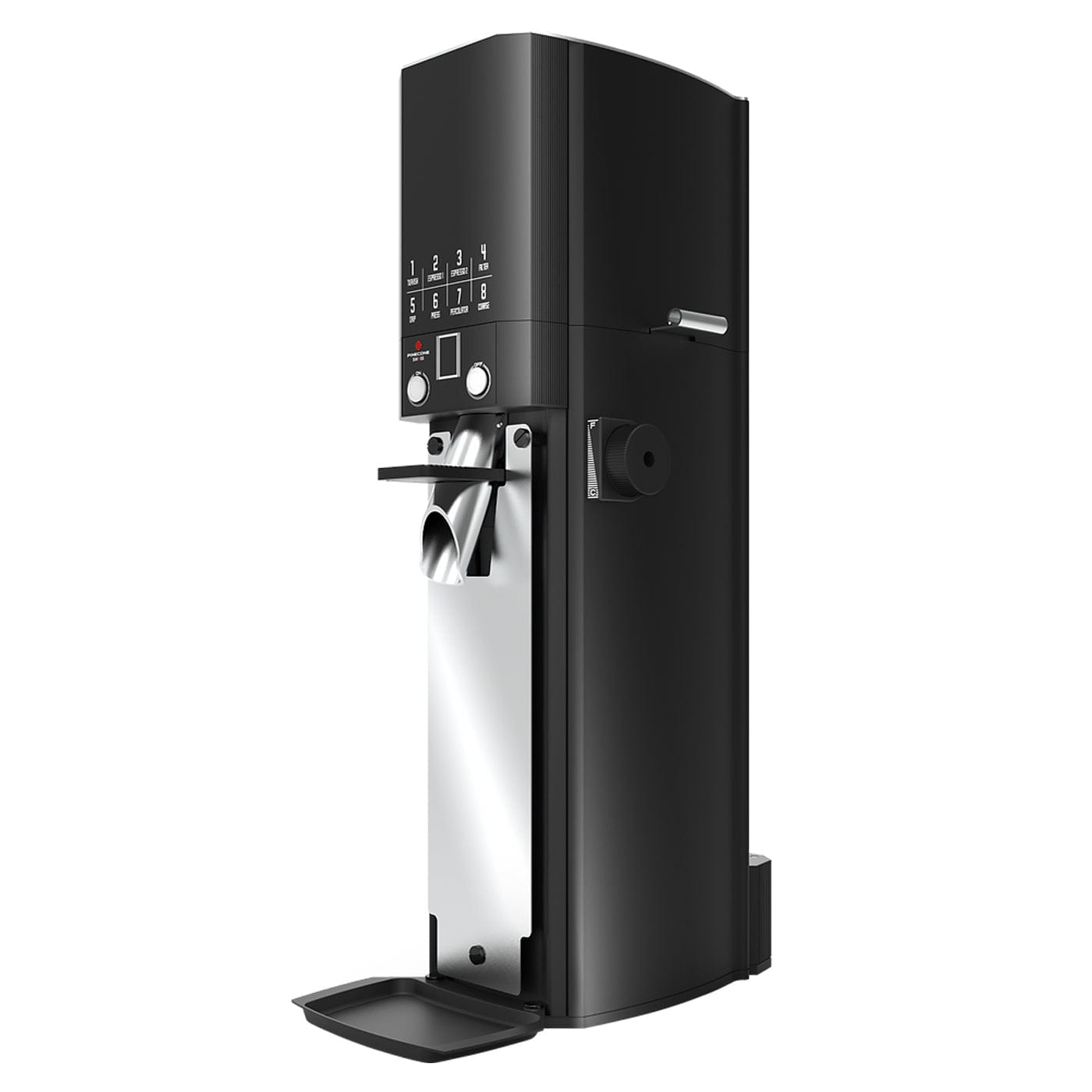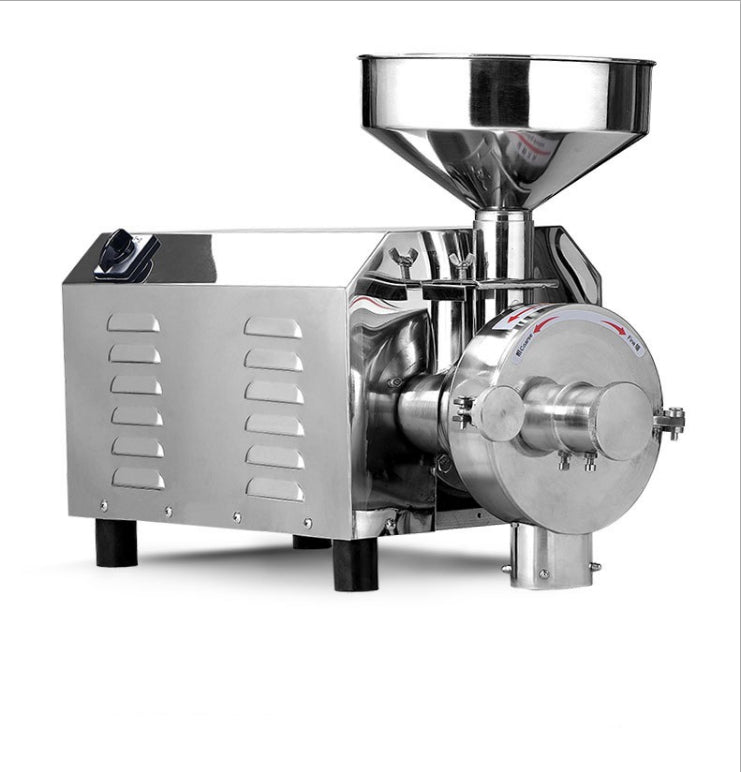Exactly How to Select the Perfect Industrial Coffee Mill for Your Business
Picking the optimal commercial coffee grinder for your service is a multifaceted choice that requires mindful consideration of a number of vital elements. It is important to assess your particular grinding demands, including the quantity of coffee refined and the wanted grind uniformity, as these components straight affect taste and client satisfaction. Furthermore, comprehending the numerous kinds of mills readily available can significantly influence your operational performance. As you browse these factors to consider, one have to likewise consider the effects of budget and maintenance. What other variables could make or break your choice?
Assess Your Grinding Requirements
When selecting an industrial coffee mill, one need to initially examine their grinding needs to ensure ideal performance and consistency. This preliminary examination involves comprehending the quantity of coffee to be refined daily, in addition to the preferred grind size for various brewing approaches. A high-capacity grinder may be essential for businesses serving huge quantities of coffee, while smaller sized procedures might discover an extra compact design sufficient.
Additionally, it is crucial to take into consideration the kinds of coffee beans being made use of, as different beans may require certain grinding methods to achieve the most effective flavor profile. For example, oily beans might demand a mill designed to manage such characteristics without clumping or overheating.
Specialized coffee organizations commonly demand precise work dimensions to enhance extraction and taste, making it crucial to select a grinder that can supply uniform results. Assessing the readily available space and electrical demands will aid in choosing a grinder that fits perfectly into your operational process.
Understand Grinder Types
Recognizing the numerous sorts of industrial coffee grinders is crucial for making an educated selection that meets details functional requirements. There are mainly two classifications of mills: blade mills and burr grinders.
Blade grinders use spinning blades to cut the coffee beans, causing an inconsistent grind dimension - Industrial Coffee Grinder. While they may be a lot more economical, they are commonly not suitable for commercial applications where accuracy is vital
On the other hand, burr grinders supply a more consistent work by squashing the beans between two surface areas. They can be more classified into flat burr and conical burr grinders. Apartment burr mills supply a constant grind size and are commonly favored for coffee preparation, while conical burr grinders are functional and can manage a variety of mixture methods, from coffee to French press.
When choosing a mill, consider the specific needs of your service, consisting of desired work uniformity, manufacturing quantity, and the kinds of coffee beverages you prepare to provide - Industrial Coffee Grinder. Each mill type has its restrictions and benefits, so comprehending these subtleties allows educated decision-making that straightens with functional goals
Evaluate Grind Size Consistency
Attaining work size consistency is necessary for producing high-grade coffee, as variants in fragment size can dramatically affect extraction and taste. When choosing an industrial coffee grinder, click here to find out more it is essential to evaluate exactly how well the maker maintains harmony in work size across different sets. Inconsistent work sizes can result in irregular removal, leading to a cup that might taste overly bitter or weak.
To examine work dimension consistency, consider grinders with attributes such as flexible grind settings and premium burrs. Burr mills, in specific, stand out in generating consistent particle dimensions contrasted to blade mills. The material and form of the burrs play an important role, with stainless steel and ceramic choices offering durability and precision.

Think About Production Capacity
In the hectic world of coffee production, taking into consideration production capacity is paramount for companies intending to meet demand without giving up high quality. The production capacity of a commercial coffee mill directly influences a company's capability to satisfy orders effectively, handle stock, and respond to varying market patterns.
When analyzing production capability, it is important to evaluate the grinder's output rate, typically determined in pounds per hour. This dimension must straighten with your company's forecasted sales volume and growth targets. A coffee shop with a high turnover might require a mill that can process a number of hundred extra pounds daily, while a smaller operation could suffice with a lower capacity version.
In addition, consider the sort of coffee being processed. Different beans and blends may affect grinding rate and effectiveness, requiring a mill with the ability of taking care of diverse production demands. It's additionally worth factoring in the mill's ability to maintain constant quality under high result problems, as any kind of changes can affect the end product.
Inevitably, selecting a mill that matches your service's production ability will ensure you stay affordable and responsive to client assumptions.

Budget Plan and Maintenance Variables
When assessing the best commercial coffee spending plan, mill and maintenance elements play a considerable function in the overall decision-making procedure. A first investment in a high-grade mill can produce long-term advantages, however it's important to establish a clear budget plan that aligns with your organization's operational this needs. Think about both the purchase price and potential functional expenses, such as power consumption and substitute parts.
Industrial coffee mills require normal maintenance to guarantee ideal efficiency and durability. Assess the manufacturer's recommendations for upkeep, including cleansing routines and parts substitute, as these will certainly impact lasting functional prices.

Purchasing a grinder that is sturdy yet easy to maintain can conserve cash over time. While lower-priced choices might be alluring, they may sustain greater maintenance costs and minimized performance. Eventually, stabilizing preliminary prices with long-term maintenance and functional efficiency will direct you to the most effective option for your company's coffee grinding demands.
Conclusion
Selecting the perfect commercial coffee mill requires a comprehensive analysis of grinding needs, grinder kinds, grind size uniformity, manufacturing capacity, and budgetary factors to consider. By focusing on these factors, services can make certain the acquisition of a reliable, efficient grinder that meets details operational demands. A well-chosen mill not just boosts the quality of the coffee created however also contributes to the general success and productivity of the enterprise. Long-term performance and maintenance simplicity must remain main to the decision-making procedure.
Specialized coffee services usually require exact grind sizes to enhance extraction and taste, making it crucial to select a grinder that can deliver consistent outcomes. Flat burr grinders supply a regular work size and are generally favored for coffee prep work, while cone-shaped burr grinders are functional and can manage a variety of brew approaches, from espresso to French press.
When selecting a commercial coffee grinder, it is here essential to evaluate exactly how well the device maintains harmony in grind dimension across various sets. Burr grinders, in particular, stand out in generating consistent particle dimensions contrasted to blade grinders.Selecting the ideal commercial coffee grinder demands a detailed assessment of grinding demands, grinder types, grind dimension consistency, manufacturing capacity, and financial factors to consider.
Comments on “Industrial Coffee Grinder Upkeep Suggestions for Long-Lasting Performance”